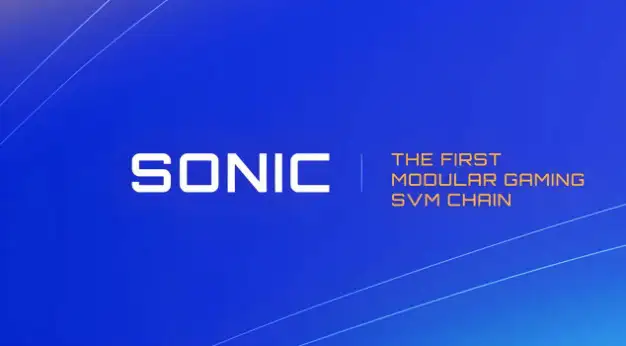Sonic, a Layer-2 network on Solana (SOL) focused on GameFi, has raised $12 million in a Series A funding round led by Bitkraft Ventures.

The Series A funding round also saw participation from Galaxy Interactive, Big Brain Holdings, Sanctor Capital, Mirana Ventures, Sky9 Capital, and OKX Ventures.
Chris Zhu, founder and CEO of Sonic, stated that the funding round was structured as equity with token warrants, bringing Sonic’s FDV valuation to $100 million. Additionally, as part of the agreement, Bitkraft Ventures joined Sonic’s board of directors.
The Series A round has brought Sonic’s total funding to $16 million, following a $4 million Seed round in 2022.
The latest funding will support Sonic in expanding its current team of 20 members, with a focus on business development, game development, and marketing teams.
Moreover, the funds will also be used for accelerator programs to support game developers in building their platforms. The accelerator program’s scale is $20 million, consisting of a combination of various tokens, stablecoins, or cash.
According to the project’s introduction, Sonic is a Layer-2 network on Solana focused on GameFi, being developed by Mirror World Labs (MWL), the legal entity owning Sonic. MWL has built a proprietary technology called the HyperGrid Framework, which allows horizontal scaling through rollups on Solana, and Sonic is being built based on this technology.
Sonic is supported by the low-cost Solana Virtual Machine (SVM), enabling developers to seamlessly deploy dApps from Ethereum Virtual Machine (EVM) chains to Solana through HyperGrid.

According to Chris Zhu’s exclusive interview with The Block, Sonic initially started as a mobile game, but the project later identified infrastructure gaps for gaming. For instance, gaming applications faced challenges regarding privacy rights, real-time processing, asset transfers, etc., on the shared layer-1 Solana. These were not tailored specifically for each application.
Therefore, Layer-2 serves as Sonic’s ultimate tool to enhance gaming applications on Solana. Sonic games are still operational but repurposed as test applications for technical validation.
Zhu identifies Sonic’s closest competitor as Eclipse, which is building an SVM Layer-2 on Ethereum. Ronin Chain and Redstone Network could also be considered Sonic’s rivals.
Currently, Sonic is deploying a development network (devnet). An incentivized testnet program named “Odyssey” is scheduled to launch this weekend, allowing users to send transactions, play games, and earn “rings” – akin to reward points. These “rings” will not directly convert into Sonic tokens, but participants contributing based on “rings” will receive rewards when Sonic’s mainnet and its token are expected to launch in Q3/2024.





